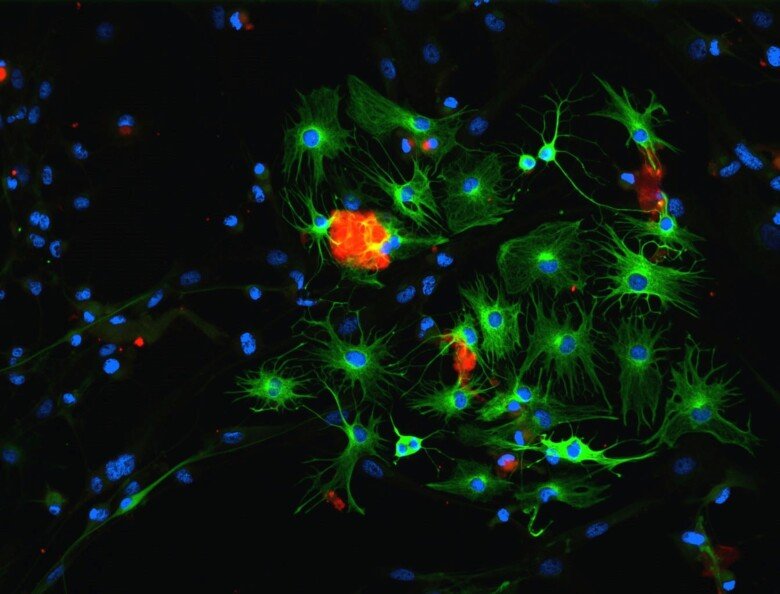Research focus

Our group is interested in the role of inflammatory cytokines such as interleukin-1 (IL-1) in the brain in physiological and pathophysiological conditions, particularly analysing the possibility to target glial cells and their products for the treatment of Alzheimer's disease and other neurodegenerative disorders. Specifically, a mouse strain with chronic blocking of IL-1 receptor-mediated activity through transgenic overexpression of human soluble IL-1 receptor antagonist (hsIL-1ra) in the central nervous system, has provided new insights into the role of IL-1 signalling in neurogenesis and behaviour, as well as cognitive function. In order to investigate the possibility to stimulate clearance of beta-amyloid, the main constituent of amyloid plaques in Alzheimer's disease brain, the group has developed a model to study phagocytosis of beta-amyloid by human glial cells. Her group also investigates possible role of peripheral inflammation in predisposing for Alzheimer's disease.
Neuroinflammation Research
Inflammation and cytokines such as interleukin-1 (IL-1) have been implicated in various neurodegenerative processes on the basis of experimental, epidemiological and clinical data. The brain mounts an inflammatory response, as noted from the occurrence of oedema, activation of resident macrophages - microglia, local invasion of circulating immune cells and production of cytokines and other immune factors. Brain inflammation is also often associated with astrocyte activation and proliferation. Neurodegenerative disorders associated with inflammation include acute states such as stroke and traumatic brain injury, but also chronic neurodegenerative diseases such as Alzheimer's disease and Parkinson's disease are afflicted.
Our research focuses on the mechanisms of inflammation in neurodegenerative disorders, with the aim to identify novel treatment strategies, such as for Alzheimer's disease and stroke. A major research interest of our group is also to elucidate the role of inflammatory cytokines such as interleukin (IL)-1 in the brain during physiological conditions.
Using a transgenic mouse strain, Tg hsIL-1ra, with overexpression of the endogenous IL-1 receptor antagonist (IL-1ra) our group has investigated IL-1 activity in the brain. Studies on neurogenesis and pathological morphological changes in astrocytes and microglia following seizures and in ageing, indicate that blocking IL-1 signalling results in impaired adaptability of the brain to pathological challenges. The studies show that blocking brain IL-1 signalling leads to lower anxiety and higher exploratory activity.
Using human and murine cell lines and primary cultures, the group is developing test systems for candidate drugs against neurodegeneration and amyloidosis, that are available for testing putative drug candidates. This includes efforts to test immunomodulatory substances for their capacity to stimulate the phagocytosis without evoking the release of inflammatory and cytotoxic microglial products. The group has shown potent neuro-rescuing effects of the neuropeptide a-melanocyte-stimulating hormone (a-MSH) in cerebral ischemia and excitotoxic brain lesions in the rat brain upon systemic post-injury administration.
